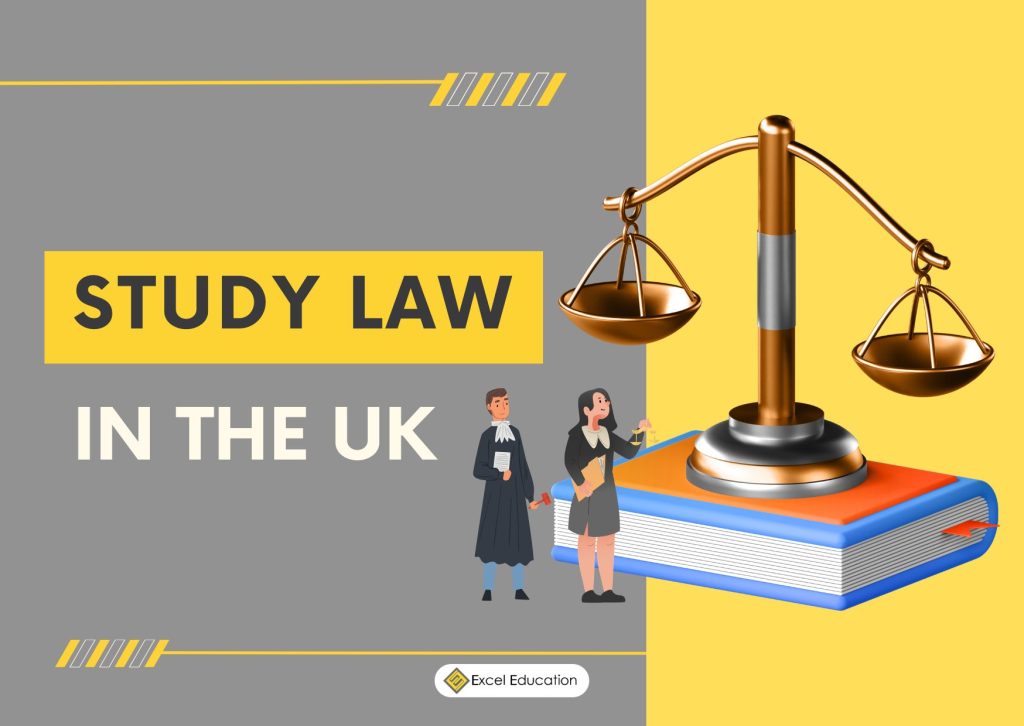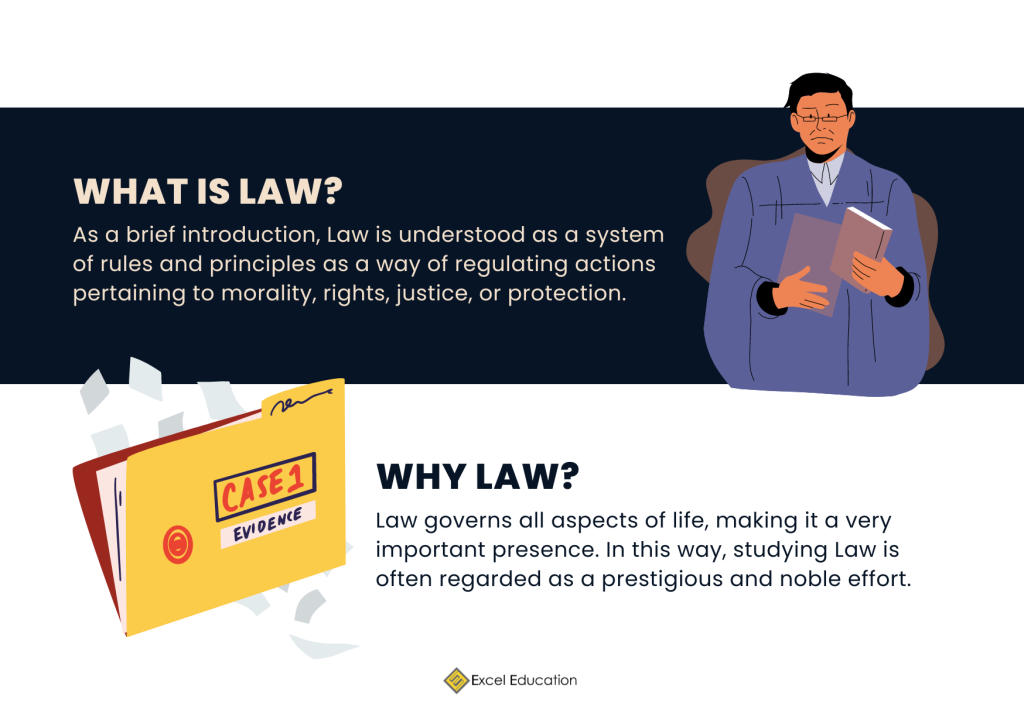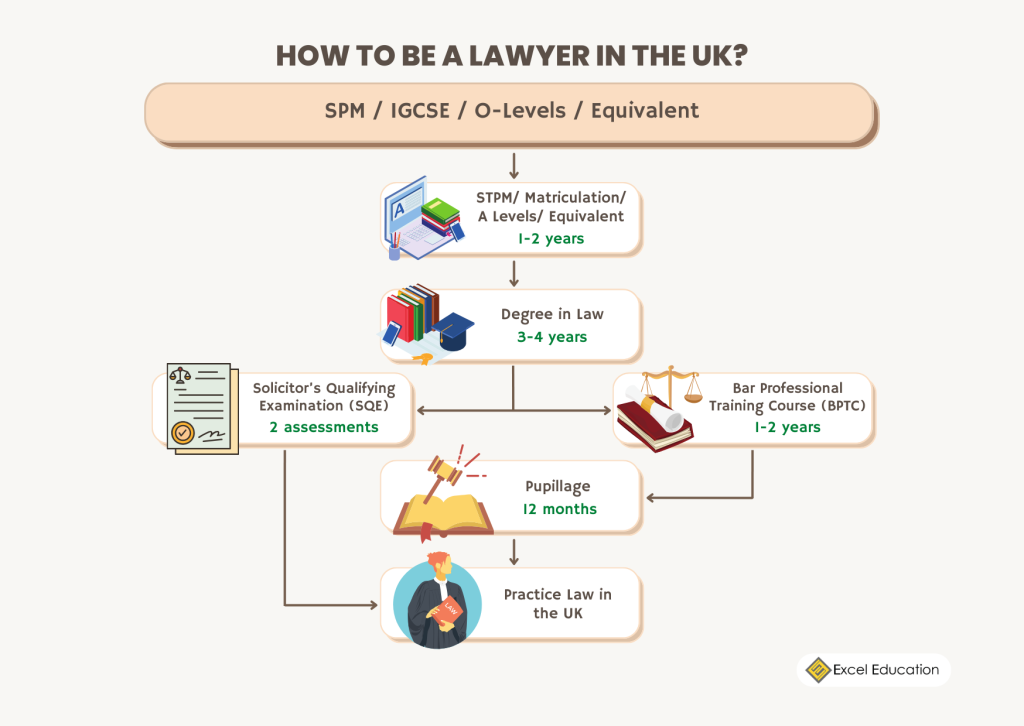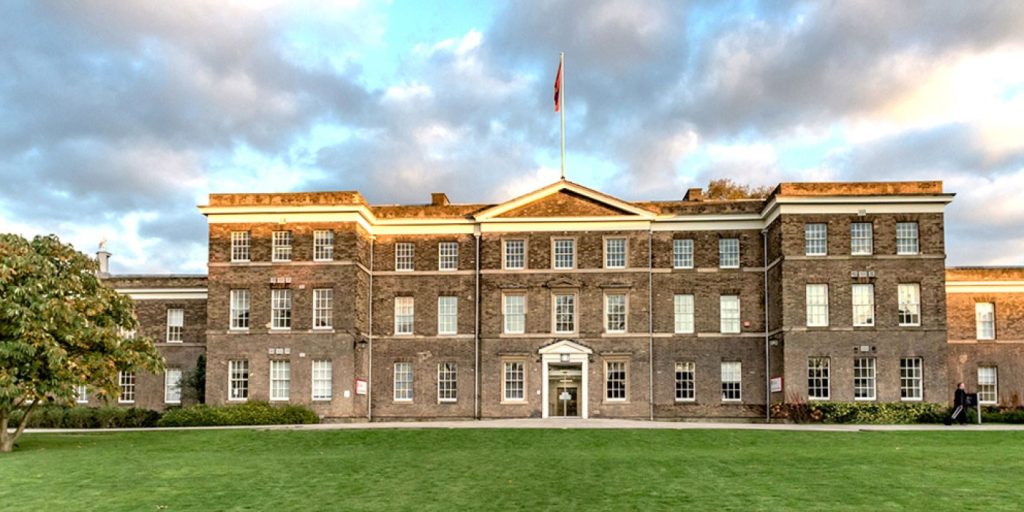
Are you looking to embody the spirit of Saul Goodman of Breaking Bad, Mike Ross of Suits, or Annalise Keating of How to Get Away with Murder? Or maybe, you are interested in advocacy for justice and the truth through a rewarding and challenging academic pursuit? Well, a Law degree could help with those aspirations! A viable option is to Study Law in the UK. Come and explore Law in the UK with us through this article.
What is Law?

As a brief introduction, Law is understood as a system of rules and principles. Law is recognised to regulate actions pertaining to morality, rights, justice, or protection. However, this is only the surface of Law out of the extensive ideas and other elaborate definitions of Law.
Law governs all aspects of life, making it a very important presence. In this way, studying Law is often regarded as a noble, prestigious, and respected effort. Education in Law is a way to uphold and advocate for justice, safety, rights, and peace.
Law extends in many branches and specialisations practised by legal professionals such as lawyers and attorneys. The tasks of legal professionals could include representing clients, preparing legal documents, providing legal advice, or conducting research.
Types of Law

Types of Law | Description |
Banking Law | Banking Law is a type of Law covering every facet of finance. Banking Law oversees and ensures legality in all financial transactions of institutions or business practices. |
Constitutional Law | Constitutional Law outlines the role, power, and function of government units, particularly the state. Constitutional Law pertains to protecting human rights and civil liberties corresponding to the government. |
Corporate Law | Company Law is an area of Law revolving around formation and regulations of corporations. Company Law covers notions relating to legal administrations including mergers, patents, and legal compliance. |
Criminal Law | Criminal Law is related to moral welfare and criminal behaviours, regardless of scale and severity. Criminal Law also proposes the appropriate rehabilitation and punishment for those who violate the law. |
Employment Law | Employment Law is a type of Law centring on workers’ rights together with employee and employer dynamics. Employment Law can include issues such as working hours, discrimination, data protection, and recruitment. |
Environmental Law | Environmental Law has to do with protecting the environment involving pollution, climate change, deforestation, and alternative energy sources. |
Family Law | Family Law concentrates on familial relationships and legal family matters. Family Law can deal with issues such as divorce, marriage, child custody, domestic abuse, or adoption. |
Intellectual Property Law | Intellectual Property Law, or IP Law, protects works or creations of individuals and businesses. IP Law maintains rightful ownerships of intellectual property through regulating patents, trademarks, and copyrights. |
Media Law | Media Law is an area of Law which deals with regulation of media content or broadcasts such as advertisements, digital media, music, among other forms of media. |
Property Law | Property Law defines the ownership of land or personal property. Property Law can work with clients, companies, developers, or private bodies, on residential or commercial cases relating to property rights, wills, probate, and trusts. |
Skills required to study Law

- Reading Comprehension
Reading is inevitable in the study of Law. Studying Law requires reading numerous highly dense texts including previous cases, academic opinions, and legislations. As such, reading comprehension is a needed skill to properly interpret and understand the reading materials.
- Time Management
Strong time management and organisational skills are advantageous as Law students would have to juggle a heavy workload for their studies alongside extracurriculars and personal responsibilities.
- Sound Reasoning
Law students should have proper sound reasoning with analytical and critical thinking skills in order to form mature arguments. This skill also helps in properly dissecting cases and evaluating issues of the case.
- Perseverance
Studying Law can be a challenging feat. Accordingly, preserverances helps with overcoming challenges and obstacles during your studies. More importantly, studying Law (or any degree in that matter) is whatever you make it to be.
- Articulate
The skill of being articulate benefits in conveying verbal arguments, ideas, and negotiations in classroom discussions or mooting competitions. This skill can definitely be improved with practice throughout your studies.
Career options for Law graduates
Career options for Law graduates are diverse depending on students’ interest and aspirations. Listed below are some career options in Law:
- Lawyer
- Solicitor
- Barrister
- Consultant
- Paralegal
- General Counselor
- Judge
- Policy Analyst
- Journalist
- Legal Advisor
General requirements to study Law in the UK for international students
Academic Entry
Academic Entry | Minimum Score |
A-Levels | AAB – ABB |
IB Diploma | 32 – 34 Points |
UEC | Average 77% |
STPM | ABB – AAB |
Matriculation | Grade of 3.5 |
Australian Matriculation (ATAR) | 88% – 92% |
Canadian Pre-University (CPU) | 75% |
Note: Universities may have different requirements. To learn more, get in touch with us!
English Language Entry Requirements
Entry Level | Minimum Score |
IELTS | 6.0 |
TOEFL | 80 |
Pearson Test of English (PTE) | 59 |
SPM 1119 | C |
Note: Universities may have different requirements. To learn more, get in touch with us!
How to be a Lawyer in the UK?

For context, let’s briefly establish the duties and differences of a barrister and a solicitor. According to The Law Society UK, clients would typically seek out solicitors before barristers. Both barristers and solicitors are able to provide legal advice and represent their clients in court. However, here are some key differences between the two:
- Barristers are centred more on courtroom advocacy where there is less ‘behind-the-scenes’ legal work and more courtroom case presentations.
- Solicitors are the ones first contacted by clients with a broader work scope as compared to barristers, who are said to be a more specialised type of lawyer.
- The way to qualify as a solicitor in the UK is by undertaking the Solicitors Qualifying Exam (SQE) whereas a barrister would generally have to be ‘called to the Bar’ by one of the four Inns of Court.
Now that we’ve established some context, let’s talk about how to be a Lawyer in the UK and pathways to become a Lawyer.
Firstly, you would need to complete SPM or any equivalent examinations which permits you into a qualifying pre-university programme or a Diploma.
Something to note is that, the pre-university programme or Diploma should be one which allows you to enrol in a Law programme in the UK. For instance, the A-Levels programme. For more information on your options, get in touch with us!
Secondly, proceed with a Law Degree in the UK. Take note that some Law programmes in the UK have the Law National Aptitude Test (LNAT) as an entry requirement. So, be sure to thoroughly research your options!
After completion, if you wish to practise law in Malaysia, you should ensure the programme you’ve enrolled in is accredited by the Legal Profession Qualifying Board of Malaysia (LPQB). Then, you can complete the Certificate in Legal Practice (CLP) or the Bar Professional Training Course (BPTC) and undergo pupillage before you start your practising. You can read our article here for more information on how to practise law in Malaysia.
On the other hand, if you wish to practise in the UK after your Law Degree, you can take the Solicitor’s Qualifying Examination (SQE) where you have to complete two stages of assessments, complete two years of Qualifying Work Experience (QWE), and satisfy the Solicitor Regulation Authority’s (SRA) character and suitability requirements.
This examination is available for those without a Law Degree granted there is significant or equivalent work experience. Another option for those with a non-law degree is to do a Master of Laws, LLM and proceed with the examinations.
Another pathway if you wish to practise Law in the UK after your Law Degree is to complete the Bar Professional Training Course (BPTC) along with its vocational component, then, complete pupillage. As a final requirement to properly qualify and practice as a barrister, you have to wait to be called by one of the four Inns of Court.
If you have a non-law degree, you must complete a law conversion course such as the Postgraduate Diploma in Law (PGDL) before following the common steps after a Law Degree to practise Law in the UK.
Top Universities to study Law in the UK
1. Durham University

Durham University, established in 1832, is the third oldest university in England and also a member of the prestigious Russell Group. Durham University is among the top 10 UK universities for the Law subject rankings. These aspects of Durham University makes it a great choice for those wanting to academically pursue Law in the UK.
The Law programme at Durham University could act as your first step to pursuing a legal profession. The Law LLB programme has a comprehensive curriculum with first-class facilities and supportive learning environments. Students of the programme can also opt for a year of study abroad as part of the programme which extends your study duration from 3 to 4 years.
Programme Offered | Law LLB |
Duration | 3 or 4 Years |
Intake | September |
Indicative Annual Fees (2024) | International Students: £25,750 |
Note: A 4-year study duration includes a year of study abroad.
Contact us right now for a free consultation if you’d like more details about the costs, the format of the programme, and the entry requirements!
2. University of Liverpool

The University of Liverpool, founded in 1881, is a founding member of the prestigious Russell Group universities, marking their academic credibility. The University of Liverpool has a strong support for international students looking to enrol in the university alongside their extensive range of study programmes.
The Liverpool Law School at the University of Liverpool is one of the oldest Law departments in the UK offering modern legal education for prospective students. The Law programmes at the University of Liverpool has a wide array of possible modules fit for each students’ interest and aspirations.
Programme Offered | Law LLB (Hons) |
Duration | 3 Years |
Intake | September |
Indicative Annual Fees (2024) | International Students: £22,400 |
Disclaimer: There are other Law LLB programmes offered by the University of Liverpool. If you’re interested, get in touch with us!
Contact us right now for a free consultation if you’d like more details about the costs, the format of the programme, and the entry requirements!
3. University of Leicester

The University of Leicester, initiated in 1921, remains as an institution honouring history through its identity as a living memorial for who made sacrifices in the First World War. The University of Leicester continues to develop as a notable higher education provider through their wide spectrum of study programmes and globally significant research.
The University of Leicester offers their Law programmes under the Leicester Law School. Law programmes at the University of Leicester grants opportunities such as mooting competitions and student-led pro bono projects together with their relatively affordable fees.
Programme Offered | Law LLB |
Duration | 3 or 4 Years |
Intake | September |
Indicative Annual Fees (2024) | International Students: £18,950 |
Note: A 4-year study duration includes a year of study abroad.
Disclaimer: There are other Law LLB programmes offered by the University of Leicester. If you’re interested, get in touch with us!
Contact us right now for a free consultation if you’d like more details about the costs, the format of the programme, and the entry requirements!
For more information regarding the university, programs offered, entry requirements and fees, contact Excel Education.
Recommended Articles to Read
About The Author

Hannah Hir
Hannah appreciates various art forms, especially Asian literature, film and music. Most of her favorite Malaysian kuihs are green-coloured.

